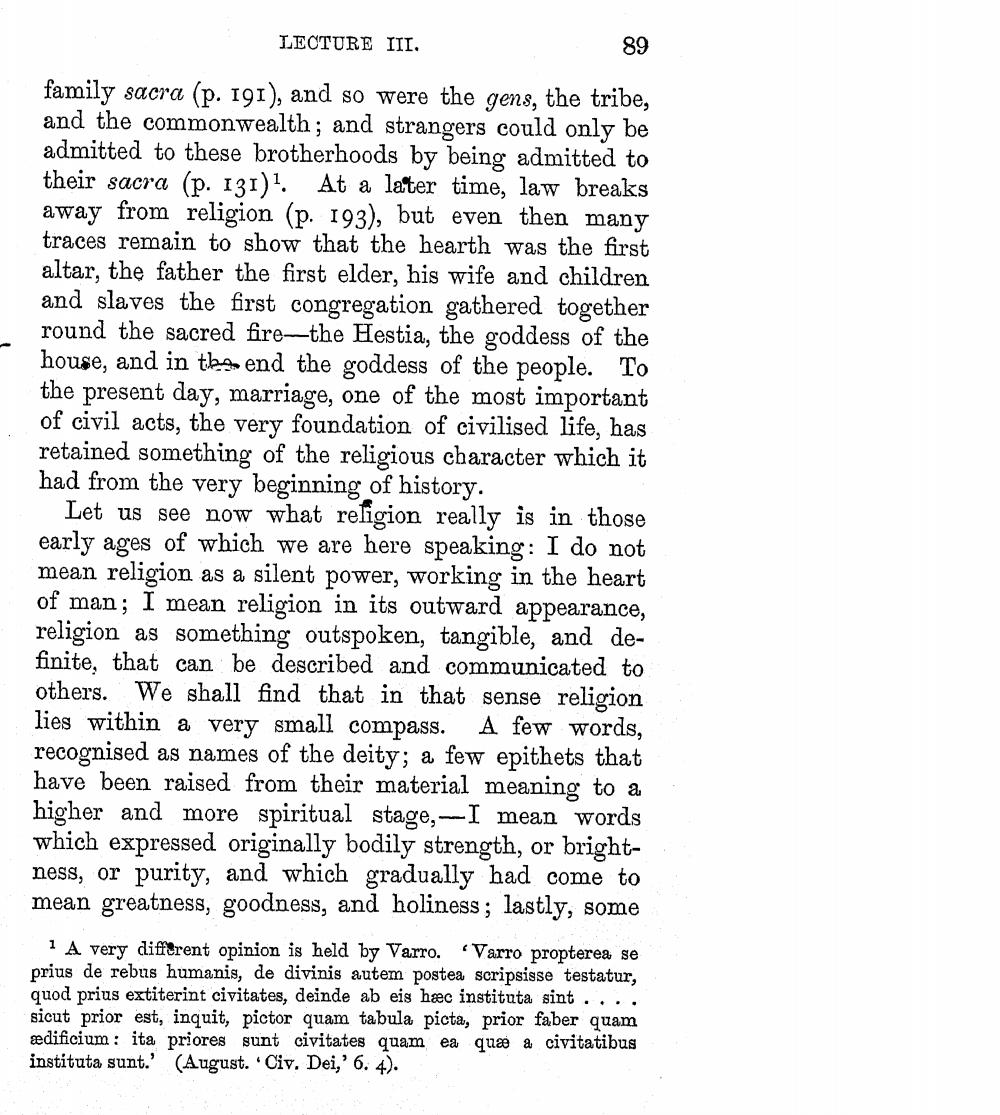________________
LECTURE III.
family sacra (p. 191), and so were the gens, the tribe, and the commonwealth ; and strangers could only be admitted to these brotherhoods by being admitted to their sacra (p. 131)? At a later time, law breaks away from religion (p. 193), but even then many traces remain to show that the hearth was the first altar, the father the first elder, his wife and children and slaves the first congregation gathered together round the sacred fire-the Hestia, the goddess of the house, and in the end the goddess of the people. To the present day, marriage, one of the most important of civil acts, the very foundation of civilised life, has retained something of the religious character which it had from the very beginning of history
Let us see now what religion really is in those early ages of which we are here speaking: I do not mean religion as a silent power, working in the heart of man; I mean religion in its outward appearance, religion as something outspoken, tangible, and definite, that can be described and communicated to others. We shall find that in that sense religion lies within a very small compass. A few words recognised as names of the deity; a few epithets that have been raised from their material meaning to a higher and more spiritual stage.--I mean words which expressed originally bodily strength, or brightness, or purity, and which gradually had come to mean greatness, goodness, and holiness; lastly, some
1 A very different opinion is held by Varro. Varro propterea se prius de rebus humanis, de divinis autem postea scripsisse testatur, quod prius extiterint civitates, deinde ab eis hæc instituta sint .... sicut prior est, inquit, pictor quam tabula picta, prior faber quam ædificium: ita priores sunt civitates quam ea quæ a civitatibus instituta sunt.' (August. Civ. Dei,' 6. 4).




